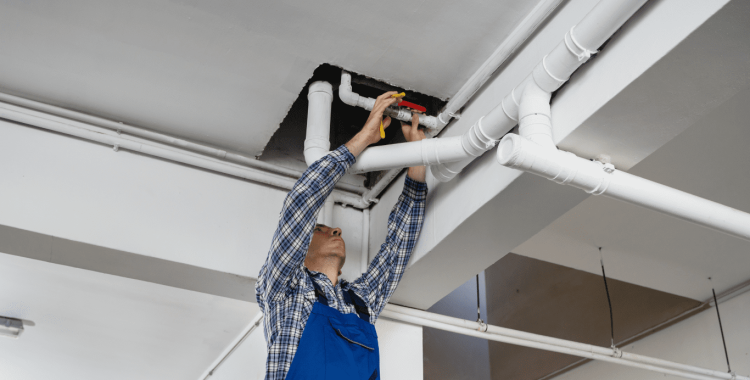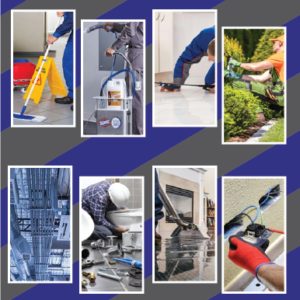
Protecting
Your Commercial Property
Detecting Plumbing Issues Before They Escalate
Maintaining a commercial property involves numerous responsibilities, and plumbing maintenance is often overlooked until problems arise. Issues such as clogged drains and poor water pressure can disrupt operations and lead to costly repairs if not promptly addressed. In this blog post, we’ll explore how to detect common plumbing issues in commercial properties and emphasize the importance of regular inspections to prevent expensive repairs.
How to detect Plumbing Issues
-
Clogged Drains: Commercial properties, especially those with high foot traffic like restaurants or office buildings, are prone to drain clogs. Signs of clogged drains include slow drainage, foul odors emanating from drains, and gurgling noises when water drains. Additionally, pooling water around drains or sinks indicates a potential blockage.
-
Low Water Pressure: Inadequate water pressure can hinder daily operations in commercial properties, affecting tasks such as dishwashing, handwashing, and restroom use. Signs of low water pressure include slow-flowing faucets, weak toilet flushing, and inconsistent water flow from fixtures.
-
Leaking Pipes: Undetected leaks in commercial plumbing systems can lead to extensive water damage, mold growth, and increased utility costs. Signs of leaking pipes include water stains on ceilings or walls, musty odors, and unusually high water bills.
Importance of Inspections
Early Issue Detection: Our team can identify potential plumbing issues during inspections before they escalate into costly problems. Detecting and addressing issues early can prevent disruptions to business operations and minimize repair expenses.
Compliance with Regulations: Commercial properties must comply with plumbing codes and regulations to ensure the safety of occupants and adherence to industry standards. Regular inspections help identify and rectify any violations, reducing the risk of fines or legal liabilities.
Protecting Property Assets: Commercial properties are significant investments, and plumbing problems can damage infrastructure, inventory, and equipment. Inspections help preserve property assets by maintaining the integrity of the plumbing system and preventing costly repairs or replacements.
Enhancing Occupant Satisfaction: Maintaining functional plumbing systems contributes to a positive experience for occupants, customers, and employees. Timely inspections and repairs ensure that facilities are clean, hygienic, and conducive to productivity, thereby enhancing satisfaction and loyalty.
Conclusion
Plumbing issues can pose significant challenges for commercial property owners and managers if left unaddressed. By staying vigilant for signs of common problems such as clogged drains, low water pressure, and leaking pipes, and investing in regular inspections by qualified professionals like Express Facility Management’s team, you can protect your property, finances, and reputation. Remember, proactive maintenance and early detection are key to mitigating risks and ensuring the smooth operation of your commercial plumbing system.
Post Views: 756






